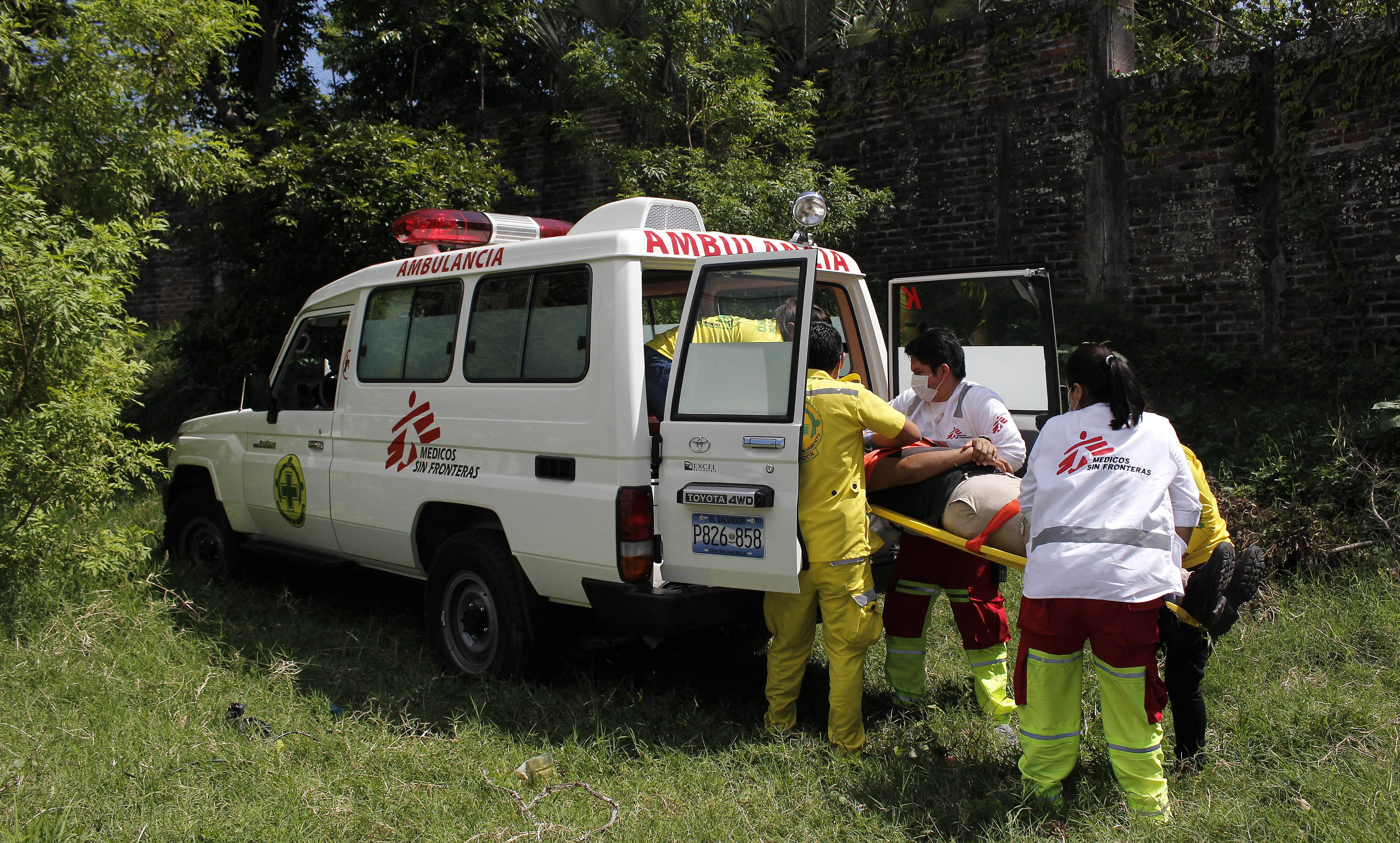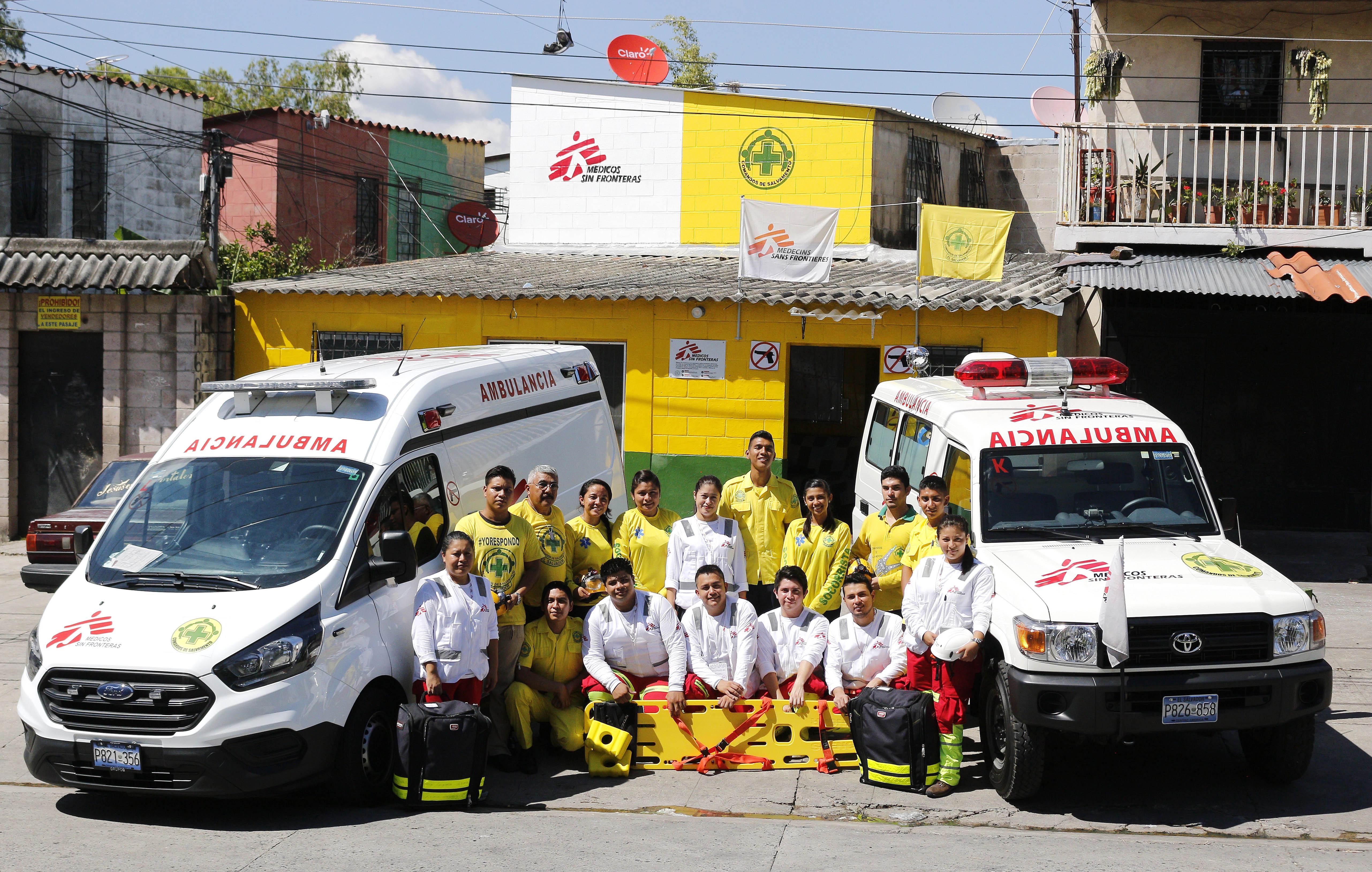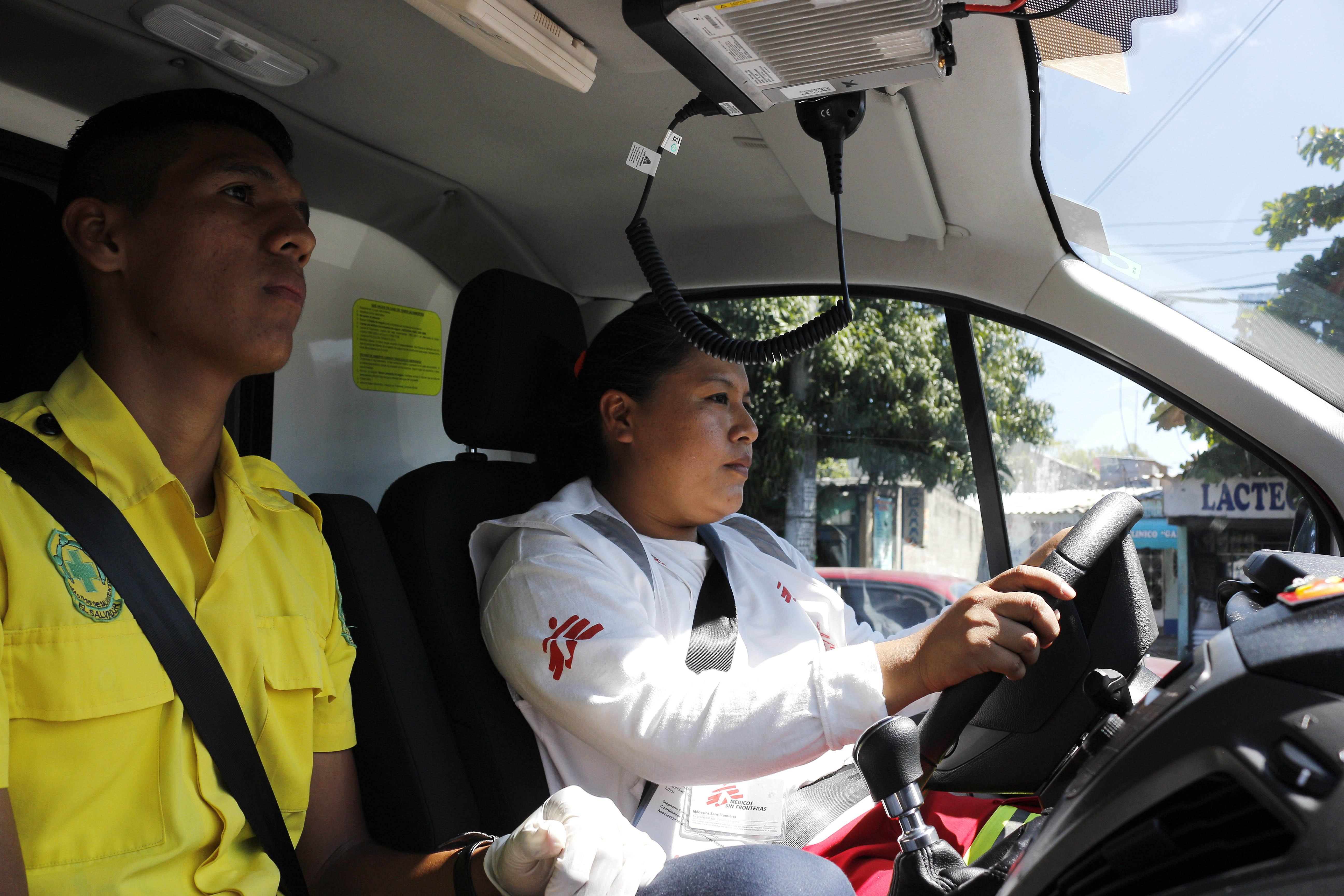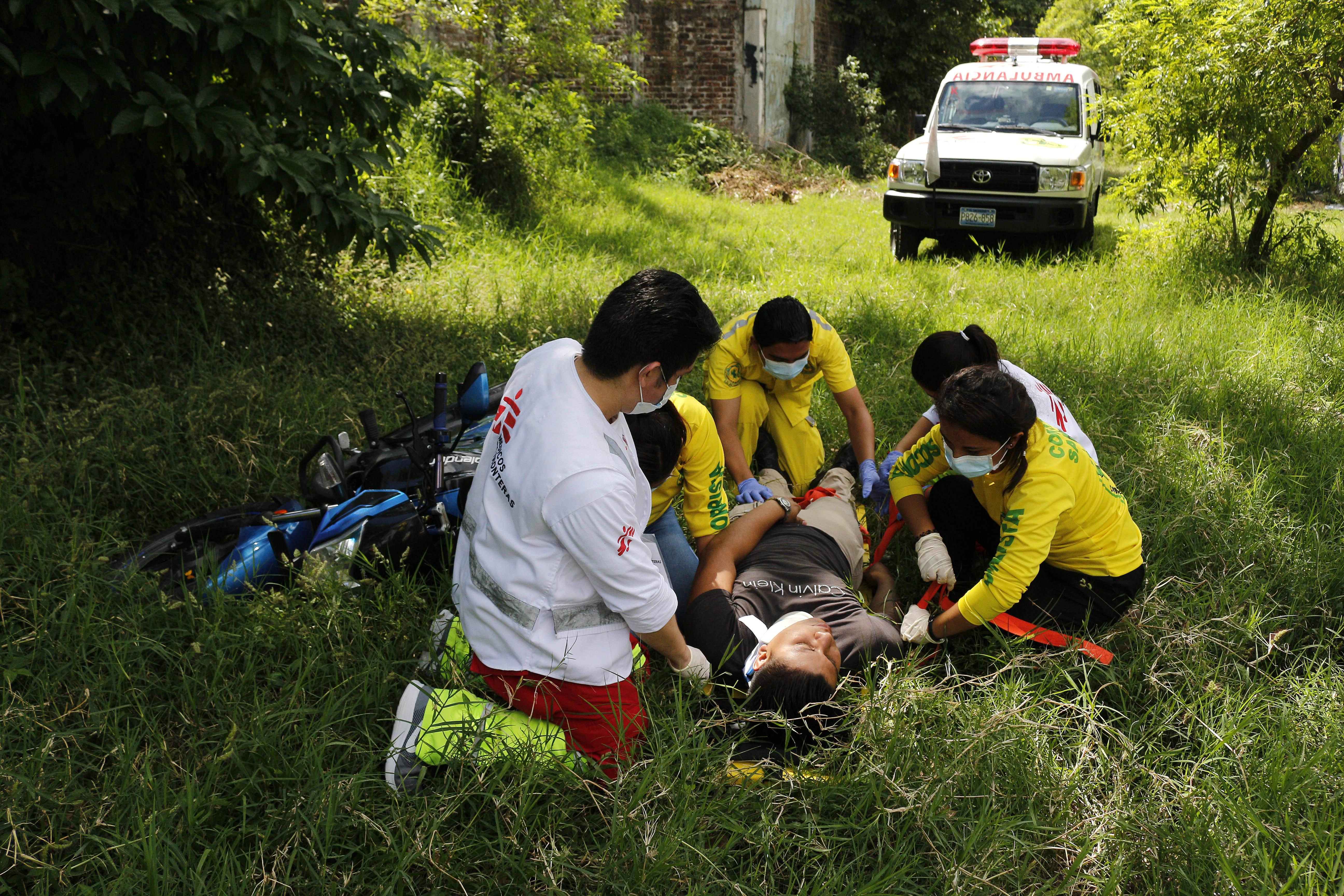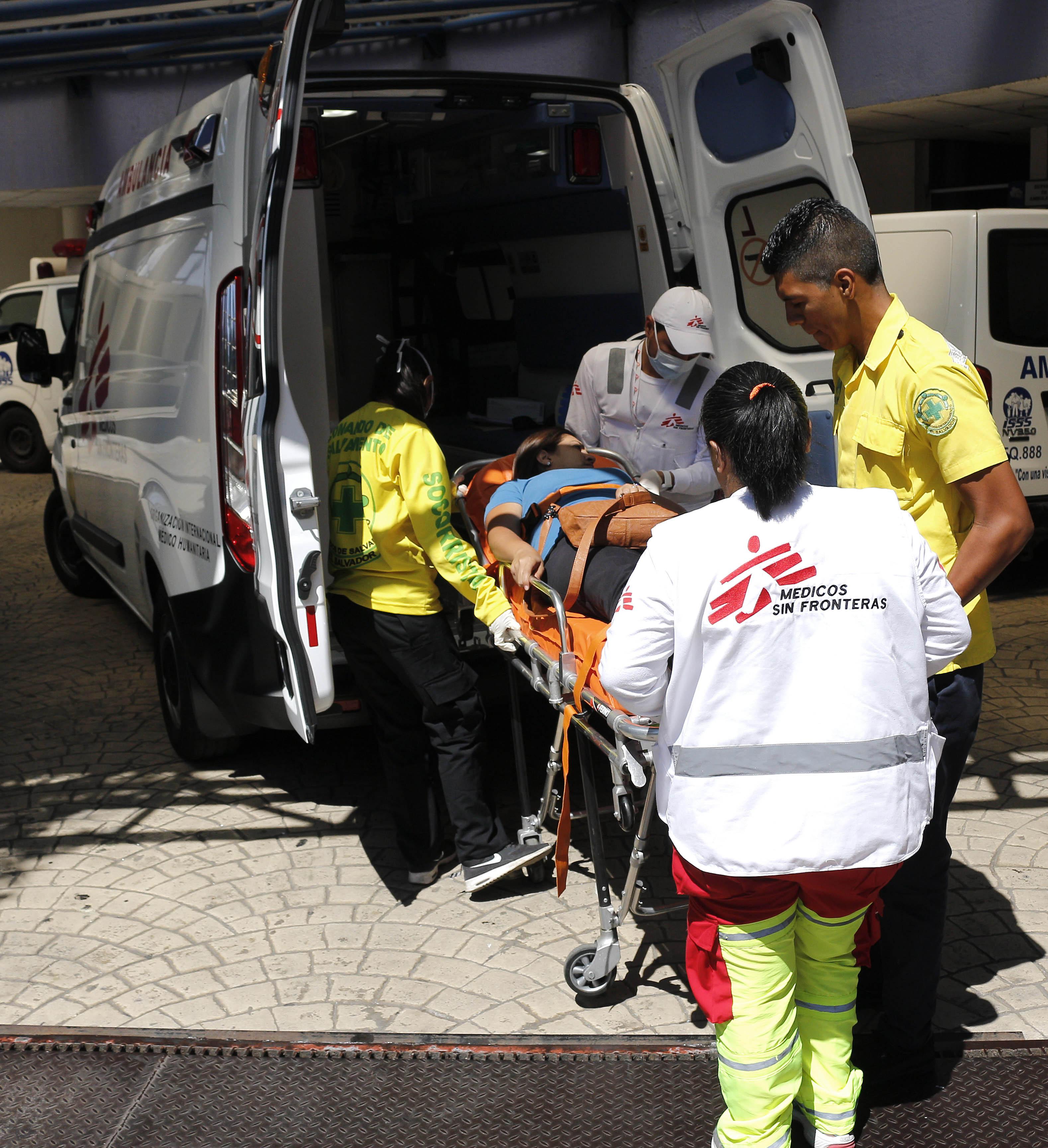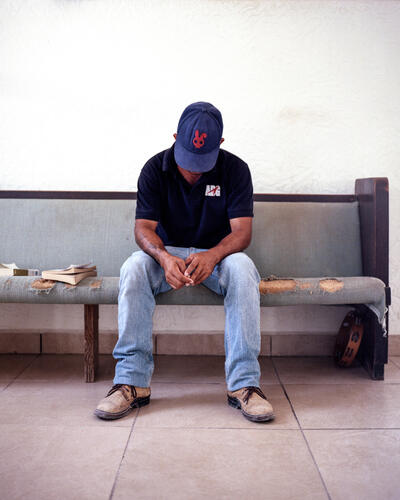With two additional vehicles, one of which is equipped to provide medical treatment, Médecins Sans Frontières (MSF) is increasing its support of the Comandos de Salvamento ambulance service and the communities it serves in Soyapango, a town close to the capital, San Salvador.
The ambulance service transports patients who live in neighbourhoods heavily affected by violence to the main hospitals in San Salvador.
Getting heathcare to those who need it
“We have provided these additional ambulances to facilitate access to healthcare for vulnerable communities in areas that relief services were unable to access, day or night, owing to the unsafe conditions,” says MSF head of mission in El Salvador, Stéphane Foulon.
MSF resumed its medical activities in El Salvador in March this year, sending medical teams first to various neighbourhoods of San Salvador and then to Soyapango.
The increasing presence of MSF teams on the streets of Soyapango, and their acceptance by locals, have made it easier for the Ministry of Health to resume activities such as vaccination campaigns and screening for diseases. These had been discontinued in the areas of Bosques del Río, Río Las Cañas and Margaritas due to the unsafe security conditions.
They have expressed thanks for bringing back services to a neighbourhood which ambulances have not entered for yearsStéphane Foulon, MSF head of mission in El Salvador
MSF and the Comandos de Salvamento
MSF teams began supporting the Comandos de Salvamento ambulance service in August.
Since then, the ambulances have made 248 journeys to transport patients from the Comandos base in Ilopango to hospitals in Soyapango and Ilopango, as well as to hospitals in San Salvador which provide more specialist care.
The vast majority of these patients required emergency trauma care, but there were also patients with neurological, obstetric and cardiovascular emergencies.
On each journey, MSF staff were accompanied by a volunteer from the Comandos de Salvamento ambulance service.
Building trust in the community
The expanded ambulance service has been greatly welcomed by people in Soyapango. “The communities know what we are doing and there is increasing trust between everyone involved,” says Foulon.
“In Villa de Jesús, for example, which is a problematic area, local young people have offered to accompany ambulances to the address they are heading to, and they have expressed thanks for bringing back services to a neighbourhood which ambulances have not entered for years.”
“Previously, people in more than 50 communities were not covered by the Ministry of Health’s medical emergency system,” Foulon explains.
We especially want to make an impact on young people in these areasStéphane Foulon, MSF head of mission in El Salvador
MSF in El Savaldor
To date, MSF teams have provided 4,167 medical consultations in San Salvador and Soyapango, mostly to patients suffering from chronic diseases, such as diabetes and hypertension, and to patients with respiratory infections, ulcers, gastric pains or diarrhoea.
Teams have provided a further 364 consultations relating to sexual and reproductive health.
MSF’s mental health teams have carried out 951 consultations and provided 11 survivors of sexual violence with mental healthcare.
“We especially want to make an impact on young people in these areas,” says Foulon.
“We want to provide them with information on how to prevent unwanted pregnancies and to make sure that they know the importance of getting specialised help within 72 hours of suffering a sexual assault.”



